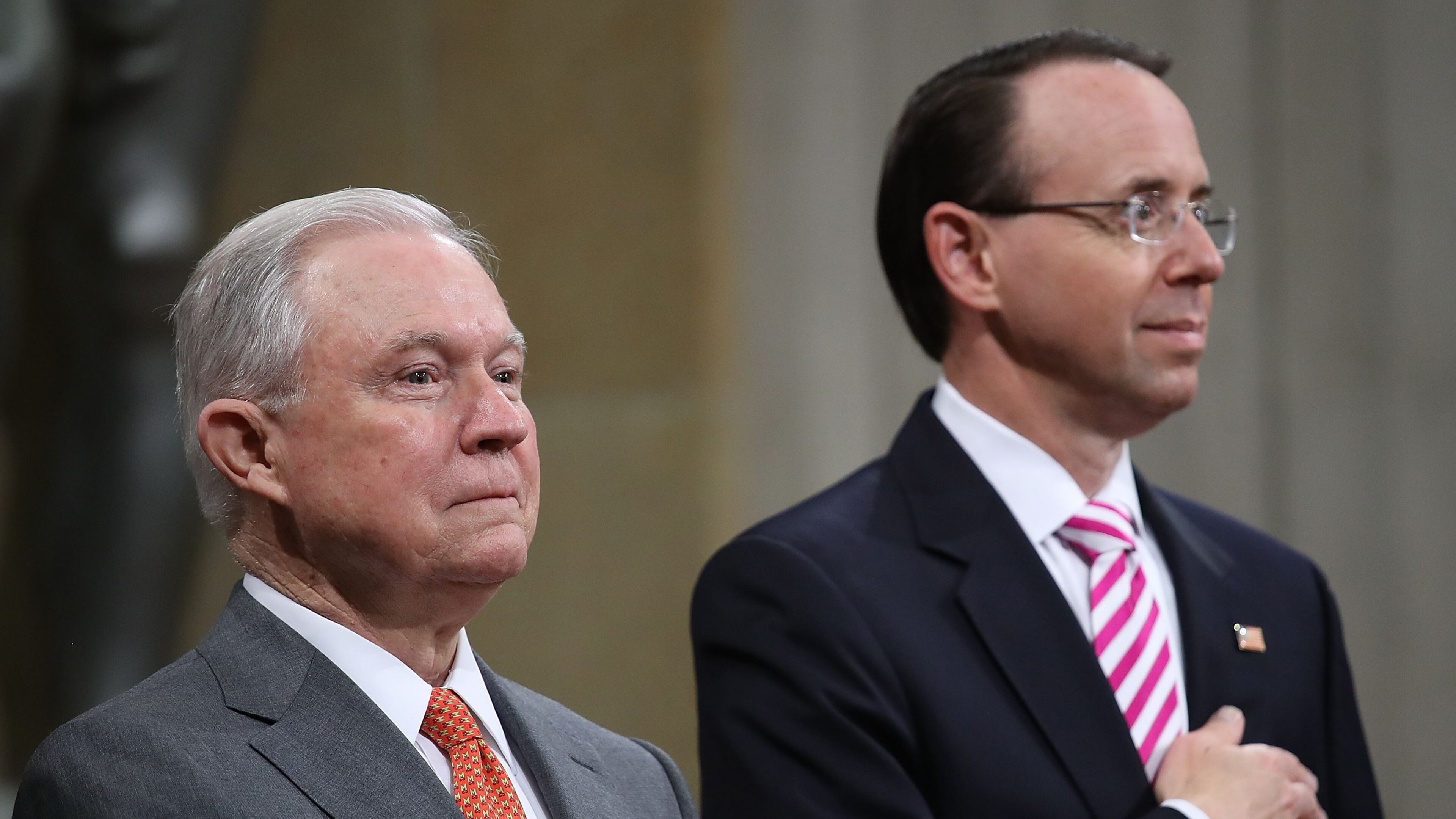Opinion: Trump, the law and the Constitution

Maybe the question isn’t why, or whether, Deputy Attorney General Rod Rosenstein explored legal channels for challenging Donald Trump as president. Maybe the better question is why others in positions of power, particularly in Congress, have not done the same.
Certainly, a confrontation between Trump and the Department of Justice has been coming from the beginning. The president is an agent of chaos, a man with an instinctive talent for creating disorder and then thriving in it. In that chaos and disorder, when the rules have been broken and others are thrown off balance, Trump seizes the advantage.
The Justice Department, the nation’s top-law enforcement agency, exists to banish chaos and disorder. It has enormous executive-branch authority, but it abides by laws, rules, regulations and procedures set by Congress and the judiciary in how those powers can be used. It is within the DOJ that the balance of power among the branches of government is most exquisite, and most important.
Trump, who took an oath to “preserve, protect, and defend the Constitution of the United States,” who is required by that document to “take Care that the Laws be faithfully executed,” has made it clear that he covets the powers of the Department of Justice for himself, while sneering at the rules that constrain that power.
He has attacked the character, judgment and even ethnicity of “so-called judges” who have defied him. He has repeatedly chastised and humiliated his own attorney general for the terrible sin of daring to put loyalty to the law over loyalty to Trump, the man.
He has publicly demanded that the Justice Department prosecute his political enemies for crimes that are crimes only in his own “very large brain;” he has encouraged and basked in chants at political rallies demanding the imprisonment of his foes.
He has complained about the prosecution of two corrupt Republican congressmen, one for stealing campaign money and another for insider trading, suggesting that their party and personal loyalty to him should make them immune. He has threatened the broadcasting licenses of networks whose reporting displeases him, and he has intimidated corporations whose executives do not bow to his demands or pander to his ego.
He has dangled the misuse of pardon power to frustrate the administration of justice. He has sought exemption from prosecution for those in his employ, and he has fired an FBI director for refusing to grant that exemption. He has used his executive power to demand the release of highly classified material, sensitive to national security, solely in hopes that those documents will undermine an investigation against him. He has used his media pulpit to weigh in heavily in a criminal case, against his own government and while the jury sat in deliberation.
He has publicly attacked the legitimacy and fairness of federal law-enforcement, to the extent that prosecutors must now ask courts to prevent the president’s own words from being introduced into trials. And he has so thoroughly intimidated and corrupted those of his own party that they have become useless in attempting to restrain him.
Some have argued that the Founders could not anticipate the likes of Trump, and thus left us ill-equipped to deal with him. That’s wrong. They designed the Constitution with multiple mechanisms to ensure that we remain, as John Adams put it, “a government of laws, not of men.” But they assumed that we, their beneficiaries, would be a people wise and bold enough to use them.

